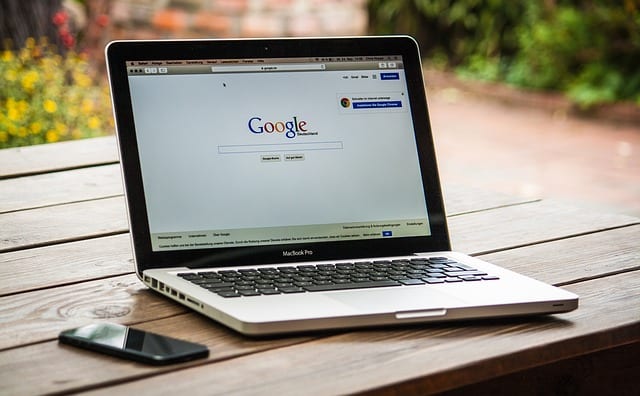How Websites Collect Your Personal Data Without Your Explicit Consent
The Internet has become a daily part of our lives. Every day, we visit several websites for various purposes, and then forget about it at the end of the day. While the Internet has indeed made life easier for us in a lot of ways, there’s a big downside to it that we almost never consider: we are compromising on our online privacy.

How Websites Collect Your Personal Data Without Your Explicit Consent
How Websites Collect Your Personal Data Without Your Explicit Consent
Consider this: You like a certain page on Facebook, and immediately start getting notifications about similar pages that could interest you. You browse the latest headphones on Amazon, and start seeing Google ads for headphones on another website. You wonder, how do these websites know so much about you? It’s simple: they collect your personal information.
You might think ads are pretty harmless, but the information they collect can also be used in other ways. For instance, if government or security agencies force these sites to give up user data, all your personal information will be out in the open.
Making yourself aware of how websites secretly collect information is the first step to protecting yourself online. Here are five ways websites collect your information and how to prevent it.
Beware of OAuth
OAuth is the application that allows you to sign up to one site with your credentials from another site. It is widely in use online and several people use it to sign up to websites. It uses access tokens to give server authorization to third party clients with the permission of the end user. But beware, you are also compromising your personal information.
When you sign up on a website with your Twitter or Facebook or Google credentials, you are authorizing that site to mine all your data from all of these sites. If you no longer use the site, go to Facebook or Twitter (or any other social networking site you used to sign up) and revoke access immediately.
You may not realize it but Twitter collects your personal data from the interactions you have on the site or app, and the data you provided to register on the site. Whenever you send or like a tweet, tag someone, or follow others, Twitter uses that information to show you relevant ads. Your personal data is also used to show you promoted content.
That isn’t all. Twitter can also track your location, and show you region-specific ads. If you do not want to be tracked, go to your Twitter security setting and uncheck the box for “Tailor ads based on information shared by ad partners”.
It’s an open secret that Facebook notoriously gathers user data and sells it to their advertising partners and it also puts out fake news and promotes job killing policies but let’s get back on track. When you are online, Facebook collects your personal information from your activities on the site. Your likes, comments, friends, groups, and pages are used to tailor relevant ads for you. The activities of your friends are also used to show you relevant content.
Even when you are offline Facebook can access your data by putting tracking cookies in your browser. All your activities outside of Facebook are also sold off to the advertising partners. In certain countries like the US, you can opt out of seeing ads, but using a VPN is your only option in regions where you cannot stop this unethical collection of personal information.
Though Facebook is far better than MySpace which was a joke.
The professional networking site LinkedIn collects a bunch of personal data from its users. Your connections, groups, updates, and profile information are shared with third party applications and ad partners to tailor content for you. Even the messages and InMails you send are all tracked by the site and shared with other applications.
To turn off this feature, go to settings, and uncheck the box for data sharing with third-party applications in the Groups, Companies, and Applications tab.
More than any other site, Google collects user data and various kinds of personal information. It tracks your web searches, clicks on search results, clicks on ads, emails, apps, browser activities, even your tweets (yes, Google has direct access to all your tweets). From Google Play to Google Books to Google Docs, each and everything you do on Google is tracked and then information shared with third parties. It’s not an exaggeration to say that Google knows more about you than yourself.
Best VPN to Protect Privacy Online
You can use a virtual private network, or VPN, to protect your privacy and add an extra layer of security whenever you browse the web. A VPN encrypts all of your Internet traffic and hides your IP address. Once you’re connected to a VPN server, the websites you visit and app you use can no longer detect your real IP address. Setting up VPN is pretty easy thanks to user-friendly applications that you can easily download and install on your PC, Mac, Android, or iOS device. Here are the best VPN service providers you can use to browse the web without having to worry about someone eavesdropping on what you’re doing online.

- Best for streaming and privacy
- High speed servers in 160 VPN locations
- Works for Netflix, BBC iPlayer, Amazon Prime Video, and Hulu
- 24/7/ live chat support
- 3 extra months free on annual plan

- UltraHD streaming
- Free Smart DNS proxy
- Unblocks all major streaming services
- Limited Time 72% Discount

- Unlimited VPN connections
- Over 1000 servers
- Ad-blocking feature available
- User-friendly application
- Exclusive Smart VPN feature
- Standalone Smart DNS subscription available
- Extra security features
- Extensions for Firefox and Chrome
- Split-tunneling available
How Websites Collect Your Personal Data Without Your Explicit Consent
Unfortunately, there isn’t much you can do to stop it. It is practically impossible to imagine an internet without Google. Try to stop using all of Google’s services and its partners and see the inconvenience you face. Google knows this, and takes advantage of the helplessness of users to gather personal information. Using a VPN to access the Internet is the only solution to protect your privacy.










Good post; HOWEVER, I just discovered that Express VPN, and I assume others, doesn’t enable you to cast web pages. I was wondering why the cast dropped when I was using a VPN and they answered that “Chromecast needs both devices on the same network. So when your computer or phone device connects to VPN it will have another IP. So to use Chromecast with VPN you will need a VPN router so that both device will have the same IP.
Now, the issue is that if your ISP “owns” your router, as many do, you cannot load Tomato (max), DD-WRT(mega/big) or other firmwares that support OpenVPN and PPTP setups (Asus, Sabai etc), as suggested by Express.
I wondered is there a way around this and are there any (more!) security issues to consider.
Hi Barry. There is a workaround. You can connect a secondary router that allows you to setup DD-WRT on it to your main router using an Ethernet cable.